News
12 March 2020
Circular energy-retrofitting
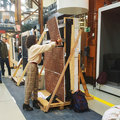
How can the energy transition be connected to creating a circular economy? Using a circular renovation module for the energy-retrofitting of housing offers a combined answer to the two challenges.
12 March 2020
100% heritage for a more sustainable future
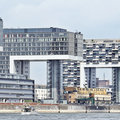
Heritage is important for our personal and collective experiences, also for future generations. It is not sustainable to only keep the pearls and make those more sustainable,” says Ana Pereira Roders. She and Uta Pottgiesser have been appointed next to Wessel de Jonge, creating a total of three professors on heritage at the faculty of Architecture and the Built Environment of TU Delft.
04 March 2020
Faculty of Architecture and the Built Environment rises to top 2 position in QS Subject ranking
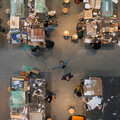
The World University Rankings by Subjects 2020, published today, places TU Delft's discipline 'Architecture and the Built Environment' in second place. Dean Dick van Gameren: "The confirmation of our position in the QS World University Ranking, even a rise to a higher position, is a more than deserved compliment for the continuous commitment and energy of our faculty community.”
26 February 2020
The right to be visible in the public space
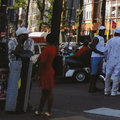
Over the past few decades, Turkish immigrants have played a very visible role in Amsterdam’s public space, but this is changing rapidly. The elimination of minorities from the streetscape reflects the decline in the city’s inclusiveness, argues Ceren Sezer in her PhD research.
26 February 2020
Predictions on energy consumption in dwellings unravelled
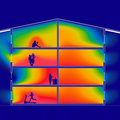
Energy simulation models are often used to help improve the sustainability of homes, but there is a slight problem with that: in reality, the predictions they make are often wrong. PhD researcher Paula van den Brom analysed actual and theoretical energy consumption in more than a million homes and developed a calibration method to improve the models at housing stock level.
26 February 2020
TU Delft climate arboretum
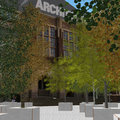
Wednesday 18 March, National Tree Day (Nationale Boomfeestdag), will see the opening of the first climate arboretum at TU Delft.
13 February 2020
The experts can’t do it alone

Smart construction leads to better buildings and better cities. At least, that is the intention. But this will only happen if we learn from mistakes and work together to find solutions, says professor of Design and Construction Management Paul Chan in his inaugural address. The experts can’t create the perfect future on their own.
06 February 2020
Using hard data to improve sustainability
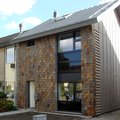
To measure is to know, especially in the energy transition. But, as professor Building Energy Epidemiology Laure Itard argues in her inaugural address, we will only truly benefit if we process the measurement data using automated systems. The smart use of big data can prevent energy systems from continuing to underperform.
06 February 2020
Declining supply and continuing price increases

At the end of 2019, the number of transactions in the market for existing owner-occupied homes is stabilising and purchase prices for existing owner-occupied homes are growing less rapidly. The number of new-build homes sold has even fallen slightly over the past two years.
30 January 2020
Modifying monumental solid brick facades
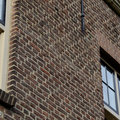
With monumental buildings, it is often difficult to estimate the building physics of the building envelope. While modifications to for example monumental solid brick facades of residential buildings can yield the desired energy savings. Researchers from the Faculty of Architecture and the Built Environment received €400.000,- to develop the necessary knowledge about the facades.